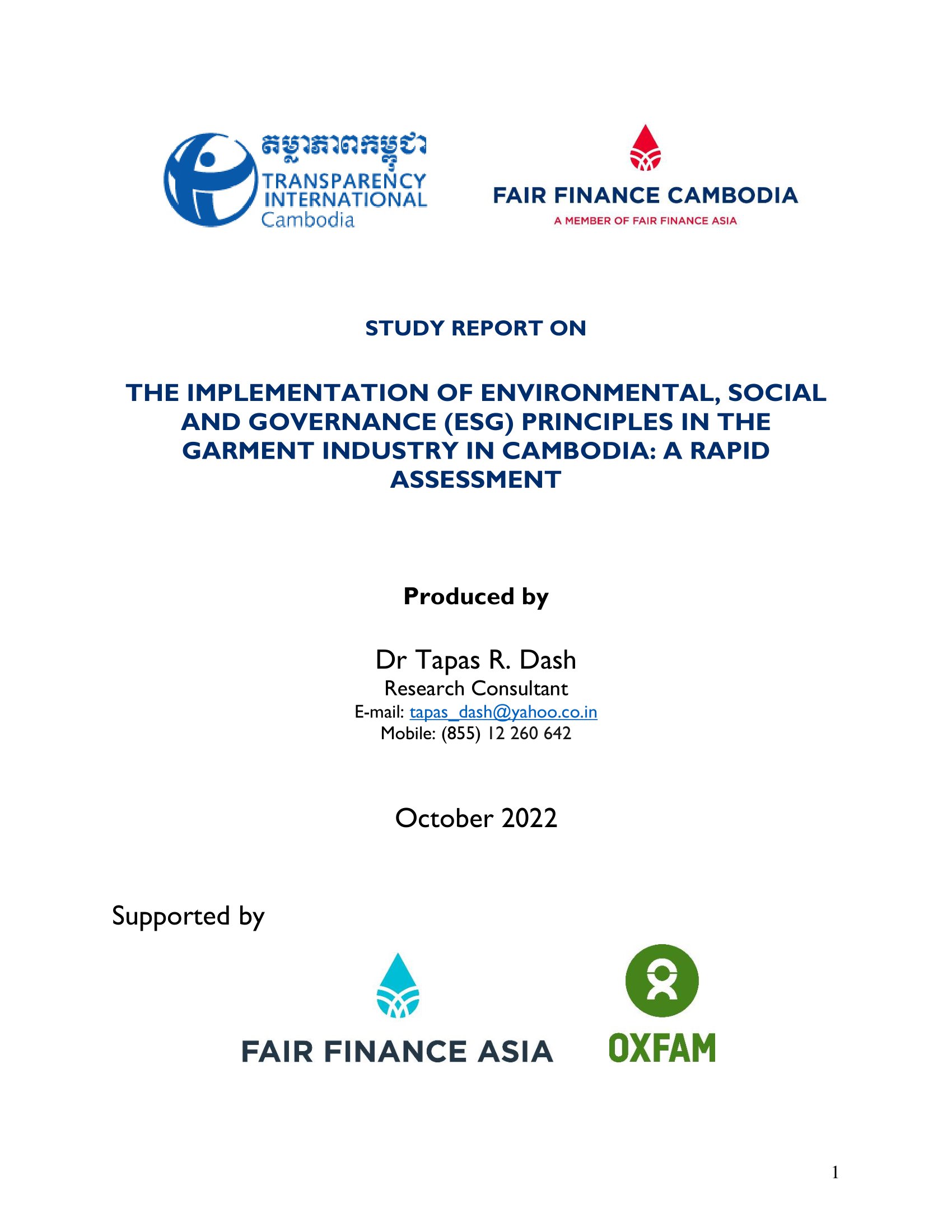
The main objective of this assessment was to examine and assess the roles and effectiveness of international buyers and international financial institutions in enhancing the implementation of ESG principles in the garment industry in Cambodia.
The findings of this study show that garment factories possess varying levels of knowledge about ESG principles. Despite their commitment to doing so, garment factories face economic challenges in implementing ESG principles.
The study also revealed that international buyers consider adherence to Cambodian labour laws as the fundamental starting point and anticipate their business partners to adhere to the essential requirements. However, the study also demonstrated that trade unions perceived a lack of commitment among garment factories to implementing the ESG principles. The concern lies with the degree to which the sub-contractors or non-exporting small-sized factories implement the ESG principles in their factories.
Findings from the study reveal that there are lapses in ensuring workers’ rights. Small factories that subcontract to larger export-oriented factories hire workers on a casual basis. Also, there are problems involving offering short-term contracts to workers, preventing workers from carrying out union activities, compelling the workers to work overtime, and terminating the contract of workers abruptly by some factories. Despite legislative protections for workers’ rights, gaps exist between policy and practice.
The study also found several policy gaps in promoting workers’ rights in the garment industry in Cambodia. For instance, the current Trade Union Law, through complicated requirements, has posed severe obstacles to forming union formation by workers. The denial of legal personality before registration impacts unions’ ability to appeal against denial of registration and violates international norms, requiring a system of notification rather than permission to register a union. The statute also stipulates that labour union officials must be literate and have a clean criminal record.
Disclaimer: The content of this publication is the sole responsibility of Fair Finance Cambodia and can in no way be taken to reflect the views of the Fair Finance Asia/ Fair Finance International network.
About Fair Finance Cambodia
The Fair Finance Cambodia (FFC) coalition aims to reduce the negative impacts of cross-border investments on human rights, the environment and climate change, particularly those made by multinational financial institutions, banks and insurers while increasing inclusive economic development. FFC is operational in Cambodia – wherein the Fair Finance Cambodia Civil Society Organization (CSO) coalition leads research and engagement with key stakeholders, including financial regulatory and policymaking institutions, banking and investment associations, multilateral development banks and academia. FFC is a member of Fair Finance Asia, a regional network of CSOs committed to ensuring that financial institutions’ funding decisions in the region respect local communities’ social and environmental well-being.